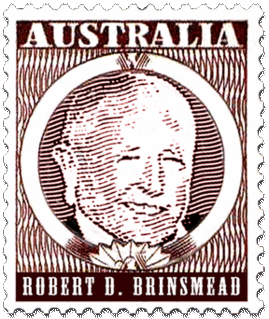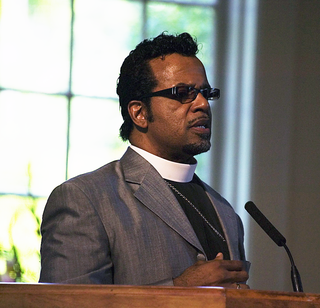A Quote by Thomas Paine
Now, which am I to believe, a book that any impostor might make and call the Word of God, or the creation itself which none but an Almighty Power could make? For the Bible says one thing; and the creation says the contrary. The Bible represents God with all the passions of a mortal, and the creation proclaims him with all the attributes of a God.
Related Quotes
The Bible in itself is not the Word of God. The Word of God is a person. Neither does the Bible have life, power or light in itself any more than did the Jewish Torach. These attributes may be ascribed to the Bible only by virtue of its relationship to Him who is Word, Life, Power and Light. Life is not in the book, as the Pharisees supposed, but only in the Man of the book .
I can understand how evolution says, "don't believe in God", but I've never had this problem. I've always loved His creation. Unfortunately, this doesn't mean any_thing to some people, and I just don't get that! After all, if you just read the Bible plainly, it tells you everything. From Creation, to the Flood, to Jesus. I can't see how you can come to the conclusion, there is no God.
The approach we try to take here [Morris's Institute for Creation Research] is to assume that the word of God is the word of God and that God is able to say what He means and means what He says, and that's in the Bible and that is our basis. And then we interpret the scientific data within that framework.
I am not religious, but I am a pious man... A religious man has a definite religion. He says "God is there" or "God is there," "God is there." "Your god is not my god, and that's all." But the pious man, he just looks out with awe, and says, "where is God?" And "well, I don't understand it and I would like to know what this creation really means." That is a pious man, who is really touched by the greatness of nature and of the creation.
We are not to make the Torah into God Himself, nor the Bible into a "paper pope." The Bible is only the result of the Word of God. We can experience the return of the Word of God in the here and now, the perpetual return of the actual, living, indisputable Word of God that makes possible the act of witnessing, but we should never think of the Bible as any sort of talisman or oracle constantly at our disposal that we need only open and read to be in relation to the Word of God and God Himself.
For Calvin, the creation reflects its Creator at every point. Image after images flashed in front of our eyes, as Calvin attempts to convey the multiplicity of ways in which the creation witnesses to its Creator: it is like a visible garment, which the invisible God dons in order to make himself known; it is like a book in which the name on the Creator is written as its author; it is like a theater, in which the glory of God is publicly displayed; it is like a mirror, in which the works and wisdom of God are reflected.
Those who, animal-like, live solely according to the senses... misuse God's creation in order to indulge the passions. They do not understand the principle of that wisdom which is revealed to all: that we should know and praise God through His creation and that by means of the visible world we should understand whence we came, what we are, for what purpose we were made and where we are going. On the contrary, they travel through this present age in darkness... with... ignorance of God.
It is often said in the Bible that God spake unto Moses, but how do you know that God spake unto Moses? Because, you will say, the Bible says so. The Koran says, that God spake unto Mahomet, do you believe that too? No. Why not? Because, you will say, you do not believe it; and so because you do, and because you don't is all the reason you can give for believing or disbelieving except that you will say that Mahomet was an impostor. And how do you know Moses was not an impostor?
When we talk about the environment, about creation, my thoughts turn to the first pages of the Bible, the Book of Genesis, which states that God placed man and woman on earth to cultivate and care for it. And the question comes to my mind: What does cultivating and caring for the earth mean? Are we truly cultivating and caring for creation? Or are we exploiting and neglecting it?
The atheist does not say 'there is no God,' but he says 'I know not what you mean by God; I am without idea of God'; the word 'God' is to me a sound conveying no clear or distinct affirmation. ... The Bible God I deny; the Christian God I disbelieve in; but I am not rash enough to say there is no God as long as you tell me you are unprepared to define God to me.




































